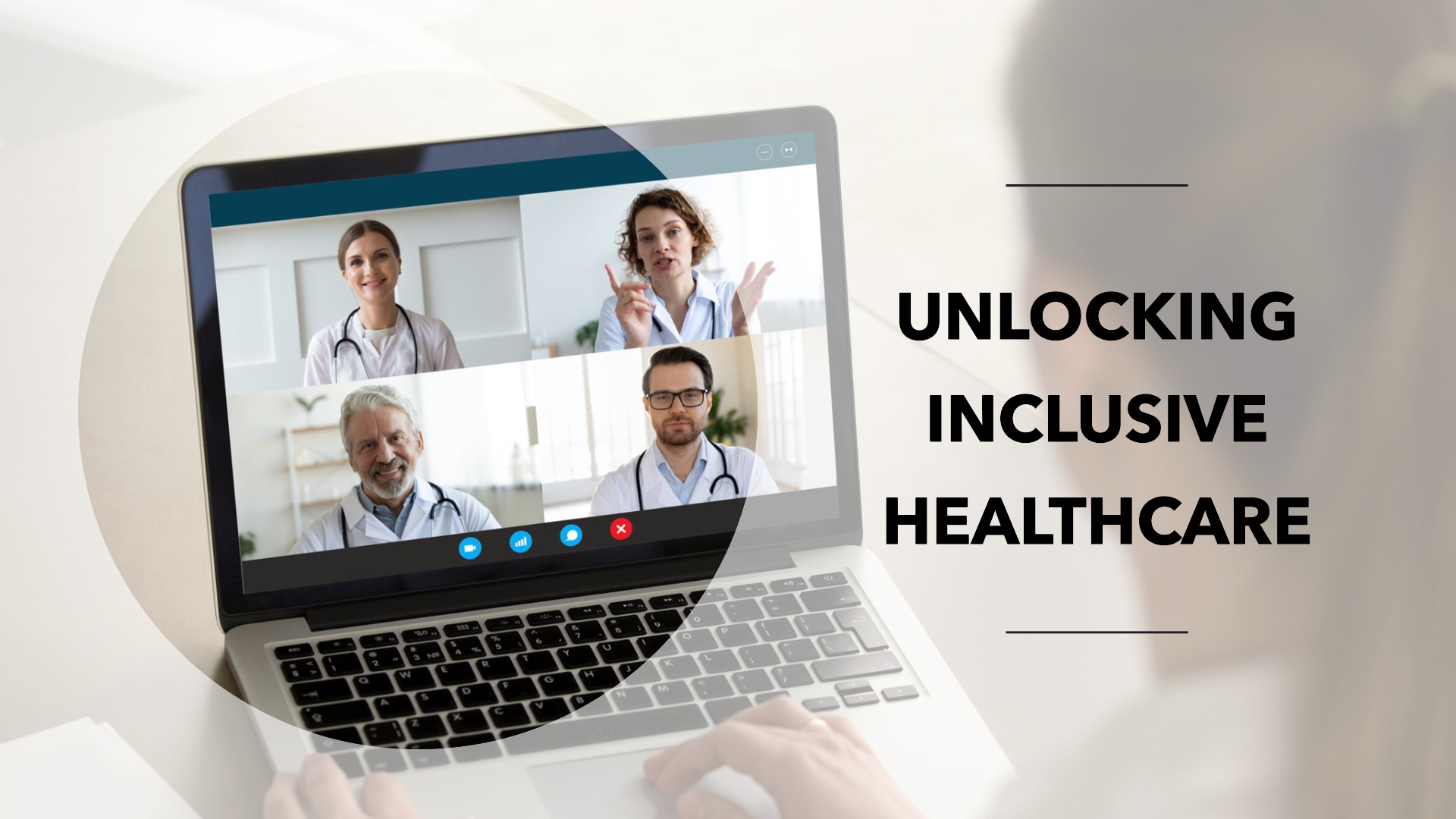Blockchain technology has been getting a lot of attention in the news lately. In this post, you’ll learn about blockchain technology and its potential impact on healthcare.
The guide is designed to help healthcare leaders understand how blockchain works, how it could be used in the healthcare context, future opportunities and challenges for using blockchain in healthcare, as well as resources for further learning and exploration.
What is Blockchain and What Does It Do
Blockchain is a digital ledger that helps to streamline the process of transactions between different parties in a business. By doing so, it eliminates the need for third-party intermediaries, which can often result in higher costs and longer transactions times.
Blockchain also allows for secure and tamper-proof data storage, which is important for medical records and other sensitive information.
Blockchain is a technology that’s being widely used in the healthcare industry right now. It has the potential to change the way healthcare is delivered and administered, and it can do this in a number of ways.
For example, Blockchain could help to streamline payments for care, reduce fraud and abuse, and even improve patient outcomes. If you want to be part of the next wave of healthcare businesses using Blockchain, you need to understand its implications.
The blockchain technology uses a network of computers that run on software that validates transactions and creates new blocks or records on a digital ledger. These blocks are linked together in chains and each block has a timestamp and links back to one preceding it. Each transaction is recorded immutably on the blockchain.
Once on the blockchain, information cannot be tampered with or removed from its database without detection by other nodes within the network – which would require consensus among all members in order to overwrite any existing record. This makes it more secure than other databases where individual records can be changed at will by anyone who has access to them
How Can Blockchain be Used in Healthcare
The use of blockchain technology in healthcare has many potential benefits. For example, it could help to reduce fraud and waste, improve communication between doctors and patients, and simplify the billing process.
In addition, blockchain could help to speed up the decisionmaking process for health care providers by allowing them to track patient outcomes across multiple locations.
Blockchain technology is already being used in a wide range of industries, including finance and real estate. In addition to these industries, healthcare professionals are also exploring the benefits of blockchain in health care.
The healthcare industry is notoriously slow-moving. While it’s certainly understandable that doctors and patients need to be careful when it comes to making decisions, it can also be frustrating for everyone involved.
For example, imagine that you’re in need of a particular treatment and there’s a list of doctors who offer it. You want to make sure that your doctor has the best possible track record with this specific procedure, but how do you know which one is best? How do you know how their patient outcomes compare to those of other providers?
Blockchain technology could help solve this problem by providing a way for all doctors who offer a certain treatment to communicate with each other and share information about their results.
This would allow patients to see where their doctor ranks on the list in terms of patient outcomes—and it would provide an added layer of transparency for health care providers as well.
Blockchain technology has the potential to upgrade healthcare in the future significantly
Blockchain is a ledger like a database because it follows all kinds of transactions. It is an online, decentralized ledger used to track and manage all types of transactions with relative ease and security.
The first use of Blockchain in healthcare was in 2008, during which it was studied to see how it could be used as an infrastructure for adopting electronic health records (EHRs). Since then, many groups have become interested in applying blockchain technology to the healthcare industry with continued improvements to the technology.
Blockchain technology has the potential to transform health care, making it safer and more secure for everyone involved.
The benefits of using blockchain in health care include:
- Privacy: Because blockchain uses public and private keys, it provides more protection against breaches than traditional databases do. These keys are used by consumers and providers to share information over a secure network without exposing their identities.
- Security: Blockchains are decentralized systems that do not rely on a single server or administrator, which makes them less vulnerable than centralized systems because no single party controls all of the data stored on them.
How Blockchain is Changing Healthcare
Blockchain could revolutionize the way healthcare is delivered. By using a digital ledger to track each patient’s interactions with health care providers, blockchain could reduce fraudulent practices and help keep track of patient data.
Blockchain also has the potential to improve the quality of care by tracking and verifying treatments and surgeries. This would create more accurate records and make it easier for patients to find the right doctor or treatment plan.
Blockchain is revolutionizing the way we think about healthcare.
There are many ways that blockchain could be implemented in the medical field, but one of the most promising applications is using the technology to track patient interactions with health care providers.
By creating a digital ledger for each person that tracks every interaction, blockchain can reduce fraudulent practices and help keep track of patient data.
Blockchain also has the potential to improve quality of care by tracking and verifying treatments and surgeries. This would create more accurate records and make it easier for patients to find the right doctor or treatment plan.
Blockchain has many uses for healthcare providers, including:
- Reducing fraudulent practices by creating an immutable record of all interactions between patients and healthcare providers
- Helping keep track of patient data by storing it on an immutable ledger
- Improving the quality of care by tracking and verifying treatments and surgeries
- Allowing patients to find the right doctor or treatment plan
The benefits and drawbacks of using blockchain in healthcare
The use of blockchain in healthcare is growing rapidly. It’s easy to see why: data sharing, security, and transparency are all very important in this industry. But how can this technology help?
The benefits of using blockchain in healthcare are many. It can help with data sharing between patients and providers, for example, by keeping track of all the details about a patient’s care over time. Blockchain can also be used to secure patient data against cyber attacks, which is a major concern in the industry right now.
However, there are some drawbacks to using blockchain in healthcare as well. For instance, it’s not always easy to make sure that all parties have access to information at all times—especially if they’re not actively involved with one another or if they don’t have the same level of access rights on the network itself.
This could lead to some confusion down the road if something goes wrong with your treatment!
Overall though? Blockchain seems like it could be really helpful—if done right!
The blockchain technology is used in various industries, including healthcare. But there are some drawbacks to using this technology in this industry.
Blockchain has many benefits for the healthcare industry. It can provide a single source of truth for all medical records, reduce fraud and abuse, and improve data management. However, there are some drawbacks to using blockchain in healthcare.
Limitations of Blockchain Technology: The first limitation of blockchain technology is scalability. The current blockchain protocols can only handle 7 transactions per second (TPS). This is not enough for large-scale applications such as those used by hospitals or insurance companies.
Another limitation of blockchain technology is that it requires an entire network to be active at any given time in order to maintain security and trustworthiness. If even one node goes offline or becomes unavailable, then the entire network will cease working properly and all transactions will fail until that node comes back online again.
This makes it difficult for hospitals and other healthcare organizations to use blockchain because they often have limited resources available on-site (such as power outages) that could cause problems with their own networks’ operations.
Blockchain Technology: A Guide for Healthcare Leaders
In reading the materials and talking with healthcare professionals, they all agreed that blockchain technology will likely be a game-changer in the health sector. Providers, patients, nurses, and even health IT companies want to use this new technology to improve the overall quality of healthcare.
Everyone sees potential in blockchain technology but no one is sure how it will turn out. We’ll all just have to wait and see how the application of this innovative technology will shape healthcare in the near future.
Blockchain researchers from across the globe believe that the technology could one day allow patients to transfer their own data, create smart contracts for sharing their data for research, and re-create their medical records in a decentralized fashion where they retain ownership and control of their data.
Contact us for more relevant details. Check our YouTube Channel, Digital Health & Wearables Series. To find out more about how we can help you with your Digital Healthcare Transformation, Healthcare organizational growth, or Healthcare brand positioning, please get in touch via phone +44 (0) 203 3620421 or via e-mail: info@digitalsalutem.com





